|
The Financial Times has an excellent article detailing China's latest IP accomplishment: setting a world record for annual patent filings. The Middle Kingdom saw over 1 million patent applications in 2015. In fact, according to WIPO statistics, in 2015 SIPO received 1,101,864 applications, making up approximately 40% of the global total -- and more than the next three countries (the US, Japan, and S. Korea) combined. Tom Mitchell's article has analysis from some of the leading experts in the Chinese patent world, including your truly. I invite you to check it out here: https://www.ft.com/content/4b6a9820-b210-11e6-a37c-f4a01f1b0fa1
China IPR Blog: SEP Litigation and Licensing in China: Are There New Voices in the Room?11/16/2016 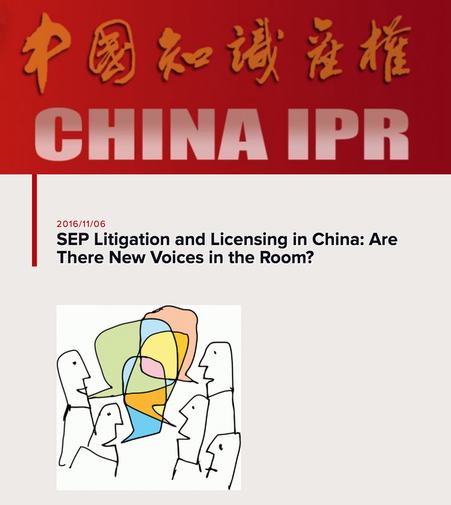 Another great post by a fellow China IP blogger. This time, it was Mark Allen Cohen of the China IPR blog delivering an excellent summary of the status of SEP issues in China. As Mark points out, things are looking up in the Middle Kingdom. Please check out his post here: https://chinaipr.com/2016/11/06/sep-litigation-and-licensing-in-china-are-there-new-voices-in-the-room/?blogsub=confirmed#blog_subscription-3 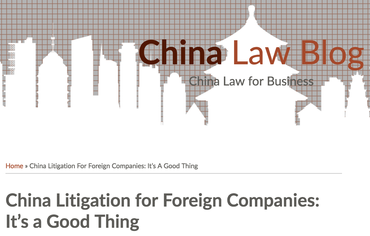 My fellow China-blogger, Dan Harris of the China Law Blog, posted an insightful article on increasing foreigners' use of China as a patent litigation forum. He explains how quickly patent cases move in China, how the courts have evolved rapidly, and how an injunction in China can turn into a worldwide injunction. Perhaps most importantly, Dan notes that the courts in China are fair, and that filing a patent case against a Chinese entity is not only possible, but likely to yield a just result (so long as the foreign entity acts reasonably and according to Chinese culture and law. This is a brief, but insightful article, and I encourage all of my readers to take a look. 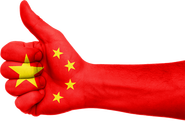 Gene Quinn at IPWatchdog is a friend of mine and he always does a great job at covering patent issues, especially the decline of patent rights in the US over the last few years. Yesterday, he and Steve Brachmann penned an excellent article on the increasing importance of China as a forum for patent litigation. As they conclude: "If these patent granting and litigation trends continue, we could be left with the rather mind-numbing conclusion that China, a country ruled by a communist government, has a more robust innovation protection regime than the United States, an ostensibly capitalist country that doesn’t seem to see the virtue in protecting the rights of innovators." See the full article here: http://www.ipwatchdog.com/2016/11/10/china-increasingly-preferred-venue-patent-litigation/id=74585/
 Here is a link to the IAM article: http://www.iam-media.com/blog/Detail.aspx?g=cdfe23cc-d26c-411e-9766-a6e87a6d0fbf. Click the image to the left for a PDF.  IP Watchdog has a good post on Qualcomm and its patent fight(s) with Meizu, the Chinese smartphone company. I do wonder why Qualcomm went to the ITC, Germany, and France, though. It appears little is gained as the Chinese suit is cut and dry and should provide Qualcomm complete relief because Chinese patent law bans exports of infringing items and all of Meizu's phones are made in China. Plus, such possible overkill may add to the sense in China that Qualcomm is acting unfairly based on its market position. Now, I am not sympathetic to Meizu's actions. The Chinese antitrust authorities took two years investigating Qualcomm and carefully crafting a settlement that they believed was fair to domestic smartphone makers. This settlement gave Chinese handset companies far and away the best deal from Qualcomm both in terms of the royalty rates and the base from which the rate is calculated. Plus, all of the other Chinese smartphone makers signed the same deal with Qualcomm that has been rejected by Meizu (Vivo and Oppo signed only weeks after Qualcomm's suits against Meizu). Indeed, Qualcomm has been chopped off at the knees in China and Meizu still wants more. This does not seem very fair. That said, China does not have to be "fair" to anyone but itself. It is a huge market (the smartphone market is now larger than the rest of the world combined) that cannot be ignored. And yes, it is extremely nationalistic. The government wants to protect its businesses and its people. The rules in China are not complicated, though. Be a friend to China, and you get to participate. And that is what worries me about Qualcomm going after Meizu in the US ITC, Germany, and France. These actions may seem like unnecessary bullying to the Chinese government and antitrust agencies. That could be a serious strategic mistake for Qualcomm, especially given that (at least to my knowledge) Meizu is not currently selling phones in the US, Germany , or France. My advice would have been to heed the Beatles and Let It Be. Let the Chinese litigation work its way through. It moves at light speed anyway and Qualcomm will surely win. Or at least it would have before appearing to become a bully. Again, I don't have a dog in this fight, but poking China (or Chinese companies) in the eye is never a smart move. Is there something I am missing? |
Welcome to the China Patent Blog by Erick Robinson. Erick Robinson's China Patent Blog discusses China's patent system and China's surprisingly effective procedures for enforcing patents. China is leading the world in growth in many areas. Patents are among them. So come along with Erick Robinson while he provides a map to the complicated and mysterious world of patents and patent litigation in China.
AuthorErick Robinson is an experienced American trial lawyer and U.S. patent attorney formerly based in Beijing and now based in Texas. He is a Patent Litigation Partner and Co-Chair of the Intellectual Property Practice at Spencer Fane LLP, where he manages patent litigation, licensing, and prosecution in China and the US. Categories
All
Archives
February 2021
Disclaimer: The ideas and opinions at ChinaPatentBlog.com are my own as of the time of posting, have not been vetted with my firm or its clients, and do not necessarily represent the positions of the firm, its lawyers, or any of its clients. None of these posts is intended as legal advice and if you need a lawyer, you should hire one. Nothing in this blog creates an attorney-client relationship. If you make a comment on the post, the comment will become public and beyond your control to change or remove it. |

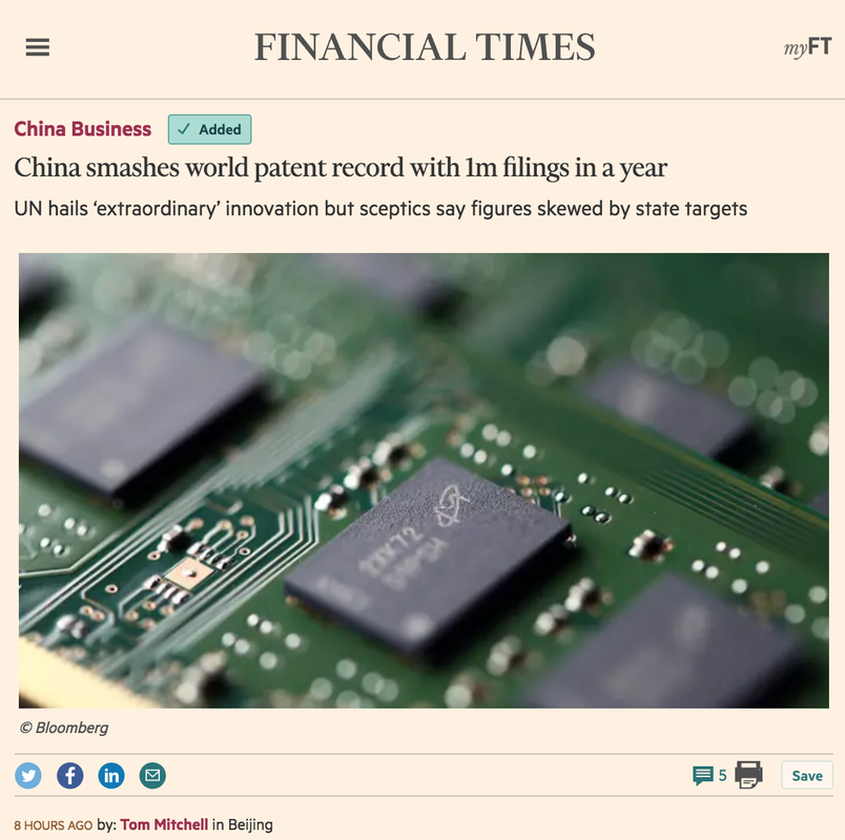
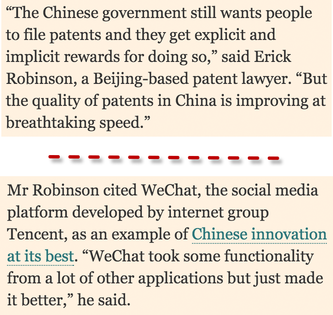


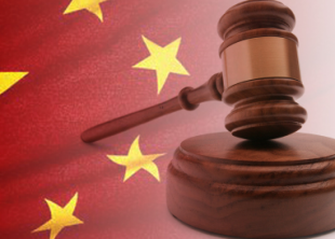
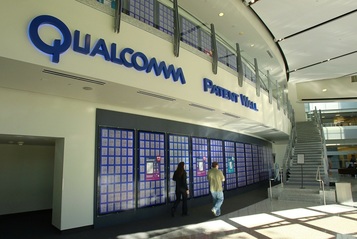



 RSS Feed
RSS Feed